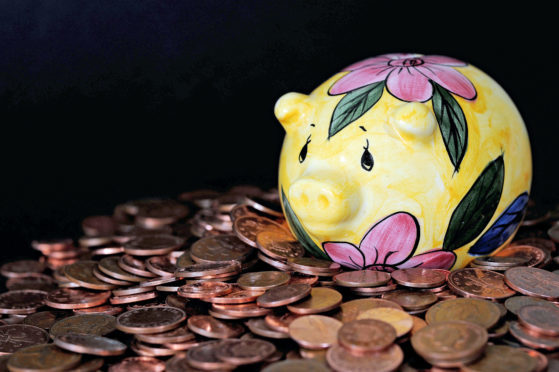Grampian’s district valuer has been flooded with appeals from businesses feeling the pinch following a controversial rates revaluation.
New statistics show there has been a 10% increase in appeals in comparison to the previous revaluation in 2010, where the percentage has remained the same across the country.
The Tories say the figures provide further proof that the north-east has been unfairly affected by the scheme.
There was an outcry last year when firms received their new rateable value – how rates are calculated – which were based on surveys done before the oil and gas downturn.
Since then, more than 10,000 properties in the north-east have appealed their bill for 2017, amounting to £802million in disputed funds compared with £559million seven years ago.
The amount of businesses appealing their bills comprises 39% of the total firms subject to rates in Grampian, compared to 30% in 2010.
Across Scotland, 233,386 firms have challenged their revaluations, amounting to £5.7billion compared with £4.6billion previously.
The percentage of appellants has remained at 29%.
Simon Cruickshank, owner of the Ship Inn in Stonehaven, has been a vocal critic of the latest review after he was hit with an increase of about 80%.
He said: “I’m not surprised there’s been more appeals, in fact I’m surprised it’s not higher than 10%.
“We are all suffering from the impact of the economic downturn brought on by the oil industry decline and there’s also been a big reduction in hotel fees in Aberdeen which is adding more pressure.
“All of that means they should be reducing the bills not putting them up. I welcomed the 12.5% cap but even then I think that’s too much.
“The original cap was a knee-jerk reaction because they had such bad publicity.
“There needs to be a review of the system, the Barclay Report was a whitewash if you ask me.”
Banff Springs owner Charles Milne has been among the most vocal opponents of the scheme.
He previously revealed his revaluation had shot up by 115%, from £92,000 to £197,000.
He said: “These figures come as no surprise to me that so many of the NE business have appealed against the disproportionate large rates rises, these increases have put serious financial pressure on doing business in the north-east.
“I can only hope that the appeal process recognises the unrealistic charges and the current cap stays in place until the appeals are completed.”
Meanwhile Colin Clark, MP for Gordon, claimed the figures highlighted the unequal impact the scheme had had in the region.
He said: “These figures demonstrate once again the disproportionate hit that business rates rises have had on companies in the north-east.
“The cost of operating here is already very high, with the SNP’s large business supplement taxing companies to the tune of several million pounds a year more than those in the rest of the UK.
“These latest rises in non-domestic rates are another burden on companies large and small that have been through a very difficult time due to the downturn in oil and gas.
“The appeals process can be lengthy, and cause a great deal of uncertainty which could have an impact on investment decisions, particularly for smaller firms.”
But a spokesman for Finance Minister Derek Mackay said that the Scottish system provided a safety net for firms faced with large bills.
The spokesman said: “Valuations of all commercial premises are undertaken by independent assessors, and a right of appeal exists for ratepayers who disagree with their valuations. Ratepayers may also request that their appeal hearing is expedited.
“Under the Community Empowerment Act 2015 councils have the flexibility to create their own local rate relief schemes, should they choose to do so.”
“While in Tory run England businesses are charged a fee to appeal their rateable value, no such charge exists in Scotland under the SNP.”
Banff Springs Hotel owner Charles Milne said: “These figures come as no surprise to me that so many of the north-east businesses have appealed against the disproportionate large rates rises, these increases have put serious financial pressure on doing business in the north-east.
“I can only hope that the appeal process recognises the unrealistic charges and the current cap stays in place until the appeals are completed.”
